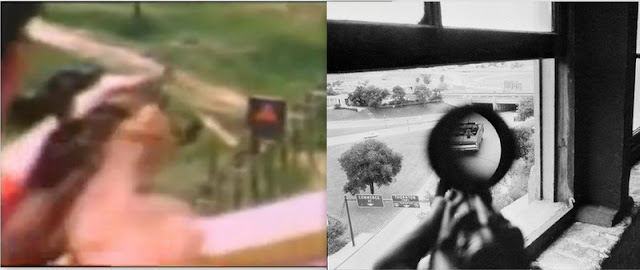Time for
another musical interlude, and this song has a JFK connection, which I’ll
explain. First, I think it’s the prettiest song ever written to a woman by
name. The woman was Laura; the song
is Laura; and the movie was Laura, from 1944.
Except: in
the movie, it was the musical score, not a song. And, it was an integral part of the story. Laura was a beautiful woman who had been
brutally murdered. A police detective, played by Dana Andrews, was assigned to
investigate, and he quickly finds out that Laura cast a spell over every man
she met. Young or old, they fell madly in love with her. And then it happens to him; he falls madly in
love with her. He starts buying her possessions as they become available,
including a large portrait of her. He keeps listening to this music, the score,
over and over because he was told it was her favorite. And he hangs around her apartment because it
makes him feel close to her. And he also descends into alcoholism because of
the hopelessness of being in love with a dead woman.
So, there he
is, sitting in her apartment alone, listening to this haunting music,
half-drunk and half-asleep, and suddenly, Laura walks in. It turns out that another
woman had been murdered, not her.
The
beautiful score was written by David Raksin, who went on to teach film score
composition at USC and UCLA. And, after
the movie came out, they brought in famed lyricist Johnny Mercer to write
lyrics for it. The very palpable, visual
lyrics that Johnny Mercer wrote are some of the most inspired I have ever heard.
Laura is the face in the misty light,
Footsteps that you hear down the hall,
The laugh that floats on a summer night,
That you can never quite recall.
And you see Laura on a train that is passing through,
Those eyes, how familiar they seem,
She gave your very first kiss to you.
That was Laura, but she’s only a dream.
The song Laura went on to become one of the most
widely covered of all time.
Now, the JFK
connection is this: the actress who played Laura was one of the great screen
sirens of Hollywood’s Golden Era: Gene Tierney.
And she had a romantic relationship with JFK.
And it was
more than just a fling. They were contemplating marriage; at least, she was.
They met in Hollywood in 1945 during the making of her next film, Dragonwck. JFK arranged it. He sought her
out; not vice versa. And I’d be willing
to bet he saw the movie Laura, and
she had the same effect on him that her character had on all the men in the
movie.
It was a
whirlwind romance, with them meeting in California, New York, Washington, and
Paris. She was estranged from her
father, but she took him home to meet her mother and brother. That didn’t go too well, because her brother
Butch knew JFK at Harvard when they were both students, and he wasn’t a
fan. Gene knew of Jack’s intention to
enter politics, and she agreed to drop everything to become his wife. And yes,
the thought of becoming First Lady did cross her mind. But, as you know, it was
not to be, and I think it was Papa Joe who nixed it, not regarding Gene as a
proper political wife for Jack. At the time, she was separated and headed for
divorce from dress designer Oleg Cassini (who went on to become Jackie
Kennedy’s favorite designer), but divorce was considered scandalous in those
days. And, he being Catholic and she
being Episcopalian was another problem. As
you know, he wound up marrying Jacqueline Bouvier in 1953- with his father’s blessing
and approval.
For Gene
Tierney, it was a difficult life. Her daughter Daria was born deaf and nearly
blind, and she was also severely retarded mentally. It came about from Gene doing volunteer work
during WW2 when she was pregnant, and she contracted German measles from a
female soldier. Daria had to be institutionalized her whole life, and that was
ongoing when Gene met Jack. In fact,
Jack shared with her his family’s heartache over his mentally ill sister
Rosemary to commiserate. And Gene went
on to experience severe, debilitating depression and had to be institutionalized
herself. She underwent many brutal electro-shock treatments. The stress of it
all, plus heavy smoking, took a toll on her looks. But, she was considered one
of the most beautiful actresses of her day, and even today, she is considered
one of the most beautiful of all time. And she was perfectly cast in Laura as the breathtaking woman who
could dazzle any man, including the future President of the United States.




























